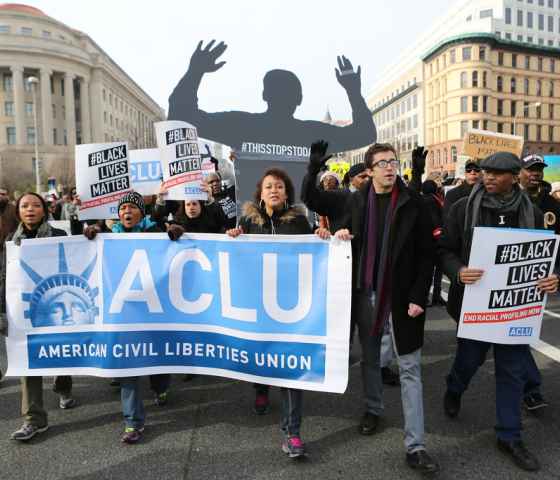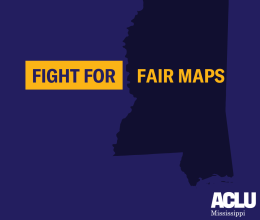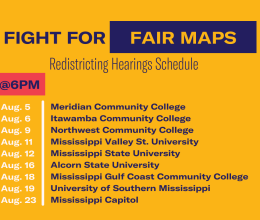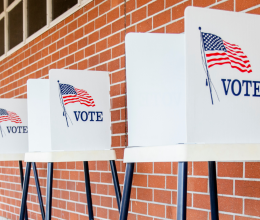FOR IMMEDIATE RELEASE
JACKSON, Miss - Mississippi's redistricting process is underway with statewide hearings being held this month. The ACLU of Mississippi released a report today outlining the ways in which legislators have racially and politically gerrymandered Mississippi's legislative districts. We want maps that more accurately represent the voices of all eligible voters and Black voters.
"For decades, the Mississippi Legislature has used the redistricting process to create an unfair political landscape for Black voters. If recent redistricting trends continue, Mississippi's legislature will be even more unjustly representative of the state," said Executive Director Jarvis Dortch.
The report reads: "Out of a total of 122 House districts, there are currently 42 majority-minority districts. Of those, 37 districts have a Black voting age population (BVAP) over 60%, and ten of them have a BVAP over 70%. Almost 65% of Mississippi’s total BVAP is represented by just over one-third of the total House districts.
The remaining Black voting-age population is dispersed throughout 80 White-majority districts, 77 of which have a larger percentage of White voting-age citizens than the state’s percentage of white registered voters. There are no House districts that are between 40% and 50% White; every district is either 50% or more White or less than 40% White."
Mississippi voters give the legislature low marks and view the body as unresponsive to issues important to voters such as no-excuse early voting, expanded health insurance access through Medicaid, a medicaid marijuana program, and greater investments in roads and bridges. Despite voter support, lawmakers have been able to ignore these issues because they believe their district lines protect them from electoral repercussions.
The district lines are simply diminishing Black voter power in the state. The concentration of Black voters in a small number of districts and scattering of Black voters in the remaining districts weakens the influence Black voters have in white-majority districts because they have insufficient numbers to form coalitions that might allow them to elect candidates of their choice.
We won't allow politicians to draw maps that dilute the voting power of our communities.
The full report can be read here.





